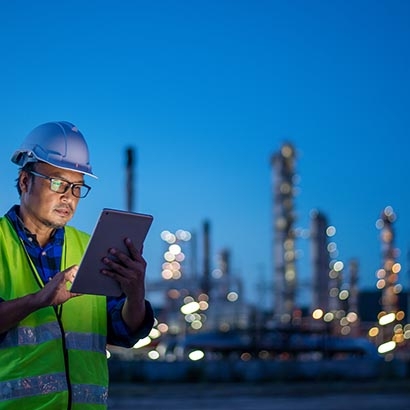In this episode, we head to Southampton, England, where the future of plastics is being invented… from potatoes.
As you walk down the street, sit in your office, or even make yourself a cup of coffee, take a look around and consider what everything is made of. More often than not, the answer will be: plastic. Our world is made of plastic. It’s one of the most affordable, versatile and indestructible materials we have. But the very properties that make plastic perfect for so much have also made it problematic. Most of that plastic is still here, and it will be for hundreds of years. But in the future, we might be able to replace the plastic we’ve come to rely on with a plant-based material that holds all the promise of plastic, without the environmental costs. We're talking about something called "bioplastics."
In this episode of the Ideas Podcast, we take you to a laboratory in England to see these bioplastics in action. First, Vincent Andrews, Chemicals and Agriculture Equity Research Analyst at Morgan Stanley, helps us understand how traditional plastic has become an integral part of both the economy and our daily lives. Next, Cole Rosengren, Senior Editor of Waste Dive, explains how a little known international policy has thwarted our the recycling system as we know it. We then sit down with David Rachelson, the Vice President of Sustainability at Rubicon Global, a startup that connects plastics producers, consumers, haulers and cities to tackle some of the inefficiencies of the current recycling model. Finally, we travel to a laboratory in Southampton, where we meet Paul Mines, the CEO of Biome Technologies, a company that is using materials such as cornstarch, potatoes and algae to create a sustainable, compostable plastic of the future.



